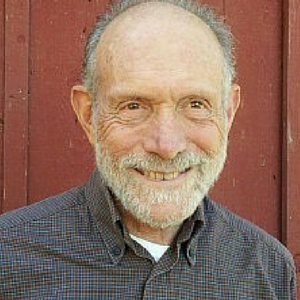
Like all cult leaders, Trump fills a certain void for his followers. Stopping him means providing pathways to sustainable forms of spiritual fulfillment.
Because of my background in ancient religion and culture I have special reason to be alarmed by the frequent references to the psychopathology of the president and his followers as a “cult.” Not that I find these references misleading — on the contrary, they contain a truth that’s more dangerous than we may realize.
I’m old enough to remember “the Jonestown massacre” of November, 1978, in which some 900 Americans committed what they called “revolutionary suicide” at the behest of a deranged demagogue. After the horrific event sunk in, I could not stop asking myself, “How could 900 presumably educated, mature adults, poison themselves — and in some cases their own children — and do it for such an obvious egotist? What was wrong with them? What were they lacking?”
Strangely no one seemed to be asking this obvious question.
And because no one was, it has come back to haunt us with greater urgency. But this time it’s not just a circle of deluded followers — it’s the whole country that’s at the mercy of an egotistical demagogue. (His semi-official diagnosis is malignant narcissism). And the cup he’s offering is not cyanide but ecocide: the extinction of all life on earth.
As Bill Moyers said about the phenomenon of the “true believers” that took in millions of Americans, “the delusional is no longer marginal.” How did this happen?
One clue comes from Catholic writer G.K. Chesterton. Chesterton was once asked, “Isn’t it awful; if people don’t believe in God they won’t have anything to believe in.” He answered, “No, it’s much worse: If people don’t believe in God they’ll believe in anything.” No matter how fantastical — or violent. As we know from the nightmare of Nazism, when the “leader” supports the delusions, the conspiracy theories of a deluded element in the society, as the current president is doing, the combination can reach extremely dangerous proportions.
A second clue comes from “Revolutionary Love,” the new book by Rabbi Michael Lerner. Though not referring specifically to cults, Lerner points out that — as human beings — we have profound spiritual needs, and today these needs are “manipulated by the right and ignored by the left.” In other words, they are not addressed. How could they be, when the unspoken narrative of our culture holds that we are separate, material fragments adrift in a meaningless universe? Fragments don’t have spiritual needs. Inert matter doesn’t have an overriding goal.
“Spiritual fulfillment is an evolutionary imperative,” wrote meditation teacher and author Eknath Easwaran. “There comes a time in the growth of civilizations, as with individuals, when the … questions of material existence have been answered, yet the soul still thirsts and physical challenges cease to satisfy. Then without meaningful aspiration, the human being turns destructive.” The more implausible the myth spun by the cult leader, the greater the sacrifice he demands: to sacrifice for something is to give it a pseudo meaning.
In the case of the horrific NXIVM cult that was recently broken up in New York, more emphasis was placed on sexual humiliation than on death (though at least two of its victims did commit suicide.) This shows, again, the lengths to which people will go when their spiritual needs are not met. Most NXIVM followers were celebrities and people from other highly successful fields, but that “success” did not satisfy their need for meaning. When left unfulfilled, extremes of delusion and violence may result. Because it’s an artificial construct, it never lasts. As Frank Rich said of our present dilemma, “All cults come to an end, often abruptly, and Trump’s Republican Party is nothing if not a cult.” Along the way, however, it can do terrific damage.
We did not learn that lesson in 1978; our very survival demands that we learn it now.
In other words, we have to provide people with valid knowledge about their real needs as human beings, and the very real possibilities available to fulfill those needs. Even the feeling that we’re making some progress toward fulfilling those higher needs goes a long way to heading off the desperate search for a way to supply some semblance of meaning, no matter how weird or destructive.
Up until about the 15th century there were effective spiritual practices in the West, for example what’s called contemplative prayer, that enabled some individuals to find that kind of meaning. However, with the emergence of materialism, they more or less sputtered out (though in Judaism some forms of meditation lasted a bit longer). Forms of these practices are being revived today, alongside the potent spiritual practices adopted from Eastern religions that have been gathering influence since the dramatic presentation of Swami Vivekananda at the World Conference of Religions held at Chicago in 1893 (the same year, by a strange coincidence, that Gandhi began confronting Western civilization with another, more fulfilling worldview in South Africa).
Various ways are therefore opening now for an individual who has the imagination to look outside the box of our surrounding culture, with its suffocating materialism. Something in us rebels against the idea that we are only separate material beings in a meaningless universe, and here and there people are finding plausible ways to explore their higher needs and inner potential. All these avenues are part of what’s come to be called the “new story” that we are beings of body, mind and spirit in a world of dramatic meaning.
Of course, to find an approach that works for a given individual calls for some maturity and a lot of discrimination. The spiritual counter cultures of today also have their share of charlatans who feed on both the extreme need and the lack of sophistication of most modern people in spiritual matters; and some of these characters, too, exploit their followers and promote dangerous ideas. A reliable spiritual culture seems to require continual lived experience by interpreters who can make appropriate readjustments to their changing times. And that takes time — the one commodity we do not have.
What we do have, however, is that legacy of spiritual practice — common to all human cultures, East and West — which is now more available to a discriminating seeker than it has been for several centuries. Gandhi had a suggestion to help make people aware of this legacy. He proposed that all students be given not just a general familiarity with, but “a reverential study” of, the world’s major religions. He implemented this in his own schools and intended it as a model for future education, formal and informal. I think it still is.
Religion or spirituality is not the only way to find meaning. After the 2004 tsunami, a U.S. marine who was detailed to hand out food and blankets to the victims was asked how he felt about doing that kind of work, which was not exactly what he signed up for. “I’ve been serving my country for 30 years,” he said, “and this is the first day I’ve gotten any satisfaction out of it.”
It’s been my own observation, and personal experience, that getting involved in nonviolent action is a very strong way to find meaning in your life. After all, Gandhi claimed that “Non-violence is the law of our species,” and you can hear practitioners picking up on this when they say things like “You don’t lose your soul in nonviolence” or “I felt I was doing what I am supposed to do.”
While U.S. service men and women are committing suicide — 20 per day according to reports by Veterans Administration specialists — peace activist Paul Chappel (a former Army captain) points out that “no one has ever gotten PTSD by doing an act of kindness.” These activists tap into a healing power that among other things insulates them from the appeal of destructive groups. But for their actions to build up to a cultural change they need our support.
It’s urgent now that education catch up with the “new story” of nature and particularly human nature, to dispel the myth of our separateness, materiality, and need for competition and violence. There’s a glorious story to be told here, and we can’t afford to go on ignoring it.
When Trump falls — and he must fall, for all cult leaders are tied to the cycle of scapegoat logic, as René Girard has so ably shown — we must make sure that this time the whole system falls with him, including the cultural system that made such a monstrous mistake possible in the first place.
This piece was published in Waging Nonviolence on February 19, 2020









spirituality of nonviolence
To use at presentation for Learning in Retirement at Nicolet Collage
Jim Johnson and I are producers and hosts of “Solutions to Violence” broadcast on our non-profit FORward Radio, 106.5 fm, in Louisville, KY. We want to extend to you an invitation to share your message of peace building, with our broadcast audience.
In a Q & A format, we focus on the violence that happens with individual lives, state, national and international conflicts. We explore how those conflicts on rights, safety and justice can be resolved through peaceful ends for all involved.
Check out our programming and others at: forwardradio.org